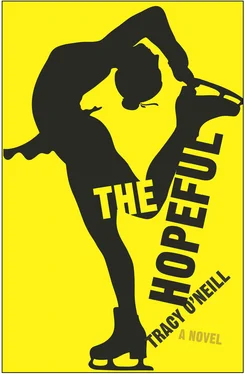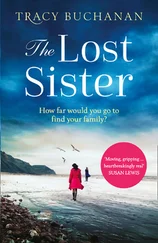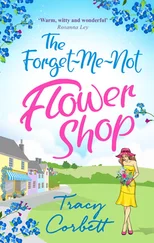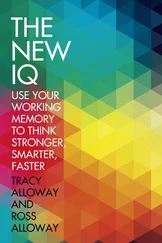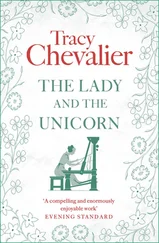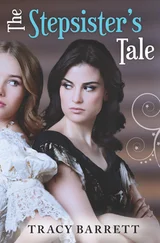“You’re so grown up,” he said. “It seems like yesterday that we were feeding you formula, worrying it wasn’t as good as breast milk even when we knew we couldn’t give it to you.” He tested the weight of my bag on his shoulder. “And now: traveling alone.”
“An army of one,” I said. I went upstairs.
The only person I knew who took speed for my purposes was Ryan, and we hadn’t spoken since the accident. Well, you don’t have it until you do, I thought. So I decided to call him. I still remembered his telephone number by heart.
Six-one-seven, I dialed. There, I was already an area code closer. But to speak to him after so long would be to acknowledge my absence, and to acknowledge my absence was to acknowledge that I hadn’t been able to skate, and to acknowledge that I hadn’t been able to skate was to think of what one couldn’t do, not what one could. I stopped. I flipped a coin. I won, which is also to say I lost. I was playing against myself. Is it always about winning? It’s always about winning. I dialed the rest of the number.
“Yoo hoo! Who is it?”
“Ryan, it’s Alivopro. Alivopro Doyle.”
“Who? Who? Sorry, I can’t hear you. Because I’m not here! Leave a message after the beep. And keep it snappy. I’m a busy girl!” I heard the voicemail tone, hung up. Drug acquisitions were not meant for answering machines.
So I lay on the floor of my room, seeing commas and teeth in the plaster of the ceiling. This was a game Lucy and I had played when I was a child, looking to the ceiling like a cloudy sky, and twisting patterns so that they meant something besides an accident of some worker’s arm. White and swirled, the ceiling could be ice carved by the sharp skates of little girls. A flat line and wave separated by a puncture might suggest the execution of a toe loop, an arc culminating in a coil a flying camel. Once I studied these ice marks for errors, but now I saw in my ceiling the forensics of love stories, etchings of rising and climax and falling narrated in plaster. What I thought was how sad it was that the Zamboni wet away blade engravings of loops and swizzles, toe pick incisions; imprints of spins after every session, all the history of discrete victories undone so quickly.
I spent the rest of the afternoon calling Ryan’s machine, hanging up when he wasn’t there, waiting until it seemed like he might be there, calling, hanging up again, calling.
This was what it must be like to be a teenager.
Jump off a bridge, I thought.
I stayed in my room all night finally seeing my past as it truly was: a series of miscalculations. I’d thought my mother loved her family. I’d thought my other mother loved her daughter. I’d thought the drugs would never run out. I’d thought Mark was my friend. I’d thought Aunt Miranda would never be savvy to my lies. I’d thought my father would be happy with me again. Even my methods of motivation had been misguided. I’d watched Michelle Kwan in awe, found the promise of a second coming in her Lyra Angelica program. But the history, the immutable history, was that she’d never ended up winning the Olympics.
At the Nagano Games in 1998, she went into the long program in first place. Scott Hamilton was one of the announcers. An Olympic champion himself, he’d done four rounds of chemotherapy the year before for testicular cancer and was in remission. “She looks so confident and relaxed,” Hamilton said after Kwan landed the first triple jump. However, she had drawn first to skate in her warm-up group, which was comprised of the top six skaters in the world. It was the worst position to be given. To keep the muscles from fatiguing prematurely meant cutting the warm-up short, and worst of all, the judges were known to hold back high marks for the earliest skater in case someone skated better later in the warm-up group. Kwan had to have known this. And perhaps that’s why, behind the seamless speed and beautiful edges and landed jumps, there was a timidity to her movements. By the end of her program, she’d fallen on no jumps — but she hadn’t skated in the vicinity of perfection either. The landing of her triple flip was tenuous. She added an extra turn between two jumps that broke the technical value of the jump combination. Four skaters later, Tara Lipinski skated a clean seven-triple program joyously and won the Olympic gold medal at fifteen.
But Kwan wouldn’t be stopped. She returned to practice for another four years. “Michelle’s goal here is to be free,” the female announcer said as she took the ice for her long program in 2002. Kwan was in first place after the short program. “She’s been waiting for this moment since she stepped off the ice with the silver four years ago,” said the male announcer. Kwan was a red glow across the ice. Her first triple was perfect, but she landed the next one two-footed. The mistake was not obvious. She didn’t fall. But it cost her her next triple, the second of her triple-triple combination. Afterward, there was still temporary vindication in a perfect triple jump. There was still much of the program to skate. A beautiful middle section of gliding edges followed, and there was freedom in the safety from the dangers of jumping. Kwan sped up to enter the triple flip, the jump she’d landed so awkwardly four year ago. She took the entire ice length to build momentum. As she stepped into the jump, there was focus to her gaze, tunnel vision. Then a fall. The entire arena let out a high cry of pain, a shocked, shared gasp. And still, Kwan continued on. She landed three more triple jumps. That night a teenager named Sarah Hughes skated a clean program and won the gold, while Michelle Kwan lost the Olympic title for a second time. Yet she was my hero, the one who didn’t stop trying.
A side effect is defined as a secondary, often undesirable, effect of a drug or medical treatment. And that’s exactly what it was when I gave Mo a concussion the following day. It wasn’t intentional, but so little is, even and especially our worst ideas. I had gone to AA for drugs, while Mo went to stay sober. I had ruined it for the both of us, and then one day, Aunt Dina and Uncle Snowden discovered him passed out drunk at the bottom of the stairs, having fallen the flight.
We found this out at Lucy’s house. Big Jack was tossing a salad, and Aunt Janine was slurring insight. “Straight mass!” she said. “Straight my ass! I knew it all along; that kid wouldn’t quit!”
Lucy was so accustomed to her mother that the diatribe was like elevator music. She embroidered comets and urine droplets on pajamas for Little Jack: Tinkle Tinkle Little Star.
“You were the only one,” my mother said.
“Runaway!” Aunt Janine foamed. “He was always a goddamned runaway!”
“Mo was doing well, “Lucy said. “I was proud of him.”
“It seemed like he’d come so far,” my mother added.
I didn’t say anything. Any liar knows that speaking should be held to Murphy’s Law: The more you say, the more that can go wrong. I stared at the purple onion rings atop my untouched spinach salad. I was tired.
“Who are you going to be kissing later? Mark?” Lucy teased. “Just eat them.”
“Fake fake fake. Faker fake fake,” slurred Aunt Janine.
“Not your momma,” I said. “And Mark has gone back to Dartmouth.”
“Too bad, but dig in, VoVo. This isn’t foreplay. It doesn’t get better the longer it lasts.”
My mother saved me with an excuse: “Ali has never eaten onions.” Yet still she was looking at me as though there was an unanswered question. “Did anything seem unusual to you at the last meeting you went to with Mo?”
“Unusual?”
“Was he upset? Did he look nervous? Tense?”
“Yeah VoVo, you were with him. Did you notice anything?”
Читать дальше
